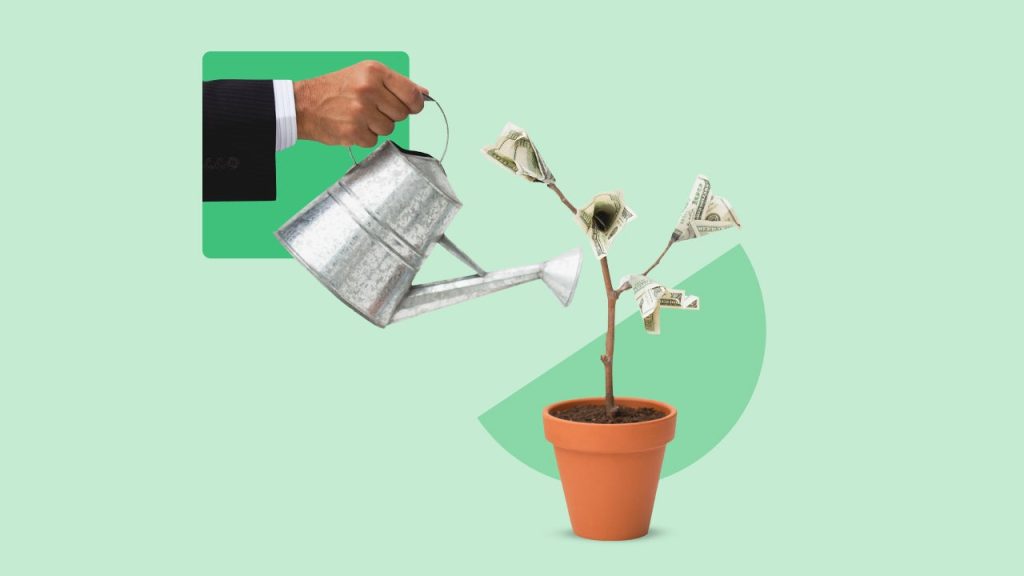- Having $100,000 in a high-yield savings account earning 4.30% APY would earn you around $4,300 in interest in a year.
- This is more than seven times greater than the $600 this amount would earn in an account that pays the national average of 0.60% APY.
- Meanwhile, some big brick-and-mortar banks offer rock-bottom APYs of 0.01%, which would only yield $10 in interest in a year with a $100,000 balance.
A savings account is often the best place to set aside funds for emergencies and short-term financial goals. It provides easy access to your money, and some savings accounts earn interest rates these days that outpace inflation.
Savings accounts typically earn a variable annual percentage yield (APY), which can fluctuate over time based on a bank’s need for funds, competition among banks and whether the Federal Reserve raises or lowers rates.
Not all savings accounts are created equal, however, as rates often vary starkly among banks. Here we’ll show what a large sum of $100,000 can earn you in a year right now in a high-yield savings account, compared with lower-yielding accounts.
For illustrative purposes, our example rates remain the same, although in actuality many banks change their savings account rates. Our examples also assume no funds are added to or withdrawn from the account over the year.
| Type of savings account | Typical APY | Interest on $100,000 after 1 year | Total amount in savings account after 1 year |
|---|---|---|---|
| Savings account paying competitive rates | 4.30% | $4,300 | $104,300 |
| Savings account paying the national average | 0.60% | $600 | $100,600 |
| Savings accounts from various big brick-and-mortar banks | 0.01% | $10 | $100,010 |
National average savings account rates
The national average APY for savings accounts is currently 0.60 percent as of June 30. Having $100,000 in a savings account with this rate will earn you around $600 after a year, for a total of $100,600.
- Type of account: Savings account
- Total amount deposited: $100,000
- APY: 0.60%
- Total interest after one year: $600
- Total account balance after one year: $100,600
While this average APY of 0.60 percent is 60 times greater than the 0.01 percent often paid by large brick-and-mortar banks, it’s still much less than what you could earn with a highly competitive account.
Competitive savings account rates
The best widely available high-yield savings accounts currently earn an APY of around 4.30 percent. An amount of $100,000 in an account earning this rate will earn around $4,300 after a year, for a total of $104,300.
- Type of account: Savings account
- Total amount deposited: $100,000
- APY: 4.30%
- Total interest after one year: $4,300
- Total account balance after one year: $104,300
Bankrate’s high-yield savings accounts page can be used to compare what various competitive banks are offering. Online banks are where you’re likely to find such high rates.
Savings account rates from big banks
Big banks with a considerable branch footprint tend to offer lackluster rates that are often near 0 percent. Keeping a significant sum of money in such a savings account will provide you with a mere fraction of the interest you’ll get from a competitive account.
A sum of $100,000 in an account that earns an APY of just 0.01 percent will provide you with only around $10 in interest after a year’s time.
- Type of account: Savings account
- Total amount deposited: $100,000
- APY: 0.01%
- Total interest after one year: $10
- Total account balance after one year: $100,010
Examples of banks with savings accounts that currently earn a 0.01 percent APY include Chase Bank and Bank of America. When your money earns a rate that’s below the rate of inflation, it’s losing purchasing power.
Where to find the best high-yield savings account
It pays to shop around to find an account that pays the best yield — especially if you’re depositing a sum as large as $100,000. Accounts that earn high APYs can often be found at online banks such as Openbank, EverBank and Bread Savings.
Other features you may find important in a bank include fee-free ATM access, 24/7 customer phone support and a highly rated mobile banking app. Bankrate’s editorial staff has written bank reviews that compare these offerings among banks. Don’t forget to make sure your money is with a federally insured bank or credit union.
Are high-yield savings accounts safe?
When your money is with a bank that’s covered by the Federal Deposit Insurance Corp. (FDIC), then it’s safe for up to a limit of $250,000 per depositor, per FDIC-insured bank, per ownership category. Likewise, credit unions carry similar insurance with the same dollar limits when they’re covered by the insurance fund of the National Credit Union Administration (NCUA).
Federal deposit insurance ensures depositors won’t lose their money if the financial institution were to close its doors. As a depositor, it’s important to make sure your money is within the set limits and guidelines.
When it comes to standard savings accounts (whether or not they earn high yields), one feature that’s not guaranteed is the amount of the APY. Unlike certificates of deposit (CDs), which typically earn a fixed, guaranteed rate throughout their term, savings accounts earn a variable rate that can be changed at any time by the bank.
Other accounts that are beating inflation
It’s not difficult these days to find a savings account that outpaces the annual inflation rate.
CDs are another type of account that may also earn yields greater than the inflation rate. The best one-year CDs, for instance, currently earn APYs over 4 percent. Locking in a CD’s fixed APY can be beneficial if the going rates on new CDs start to fall before the CD matures.
Keep in mind, however, that paying taxes on savings account interest and CD interest will eat into your earnings, putting a dent in your overall return.
Bottom line
Depositing $100,000 into a competitive savings account can earn you enough interest in a year to take a nice vacation, whereas putting it into an account with a lackluster rate won’t even generate enough to pay for a single dinner out. You’ll thank yourself in a year for having shopped around for the best rate.
Why we ask for feedback
Your feedback helps us improve our content and services. It takes less than a minute to
complete.
Your responses are anonymous and will only be used for improving our website.
Help us improve our content
Read the full article here









